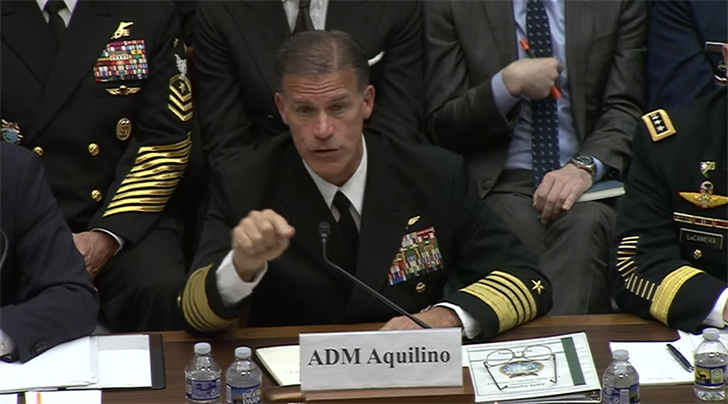Military officials say Guam is a top defense priority in House Armed Services Committee hearing
In one of his last appearances before Congress, retiring Indo-Pacific Commander Admiral John Aquilino testified at a hearing on U.S. military posture and national security challenges in the region. When asked about defense spending priorities, he said Gua

In one of his last appearances before Congress, retiring Indo-Pacific Commander Admiral John Aquilino testified at a hearing on U.S. military posture and national security challenges in the region.
When asked about defense spending priorities, he said Guam is at the top of his list.
“As Congress makes those tough decisions about how do we place resources properly, give us your perspective on how we can make sure we're coming up with the right formula…I would categorize it this way, they focus around number one the defense of the homeland, which is the Guam defense system. That is certainly the top priority,” said Admiral Aquilino.
Congressional leaders raised questions about the proposed multi-billion dollar spending for Guam's critical infrastructure to support the defense system.
Several pointed out the vulnerability to natural disasters, specifically Typhoon Mawar.
Admiral Aquilino was asked during the hearing, “At present does Guam's existing power infrastructure support the on demand power needs of the emerging defense of Guam's architecture?”
He responded, “Yeah, it's critically important. Again we've taken some steps in the past. I give you this example, so the Andersen Air Force Base power distribution mechanism is all underground. And during that storm we had only small impacts there. In places where the power distribution was above ground the super typhoon went through it pretty badly. We have to take those next steps. The Air Force has identified $7.2-billion, the Navy's identified I think some $22-billion that I think is a combination of the critical infrastructure needed plus the additional capabilities on the sub base so we have to work through that but the ability to sustain Guam certainly from storms and ultimately from attack is critically important to us.”
Guam Congressman Jim Moylan also weighed in, asking if other federal monies should and could be tapped.
Moylan asked, “Would expanded federal involvement in Guam's infrastructure make your mission easier?”
“From my seat Congressman, it doesn't matter. The mechanism that gets it as long as the capability can be delivered from Guam and we can support the military requirements as well as being a good part of the community because our footprint will increase there we need to take that into account, but for me the mechanism doesn't matter as long as it's ready in place, resilient and sustainable,” said Admiral Aquilino.
